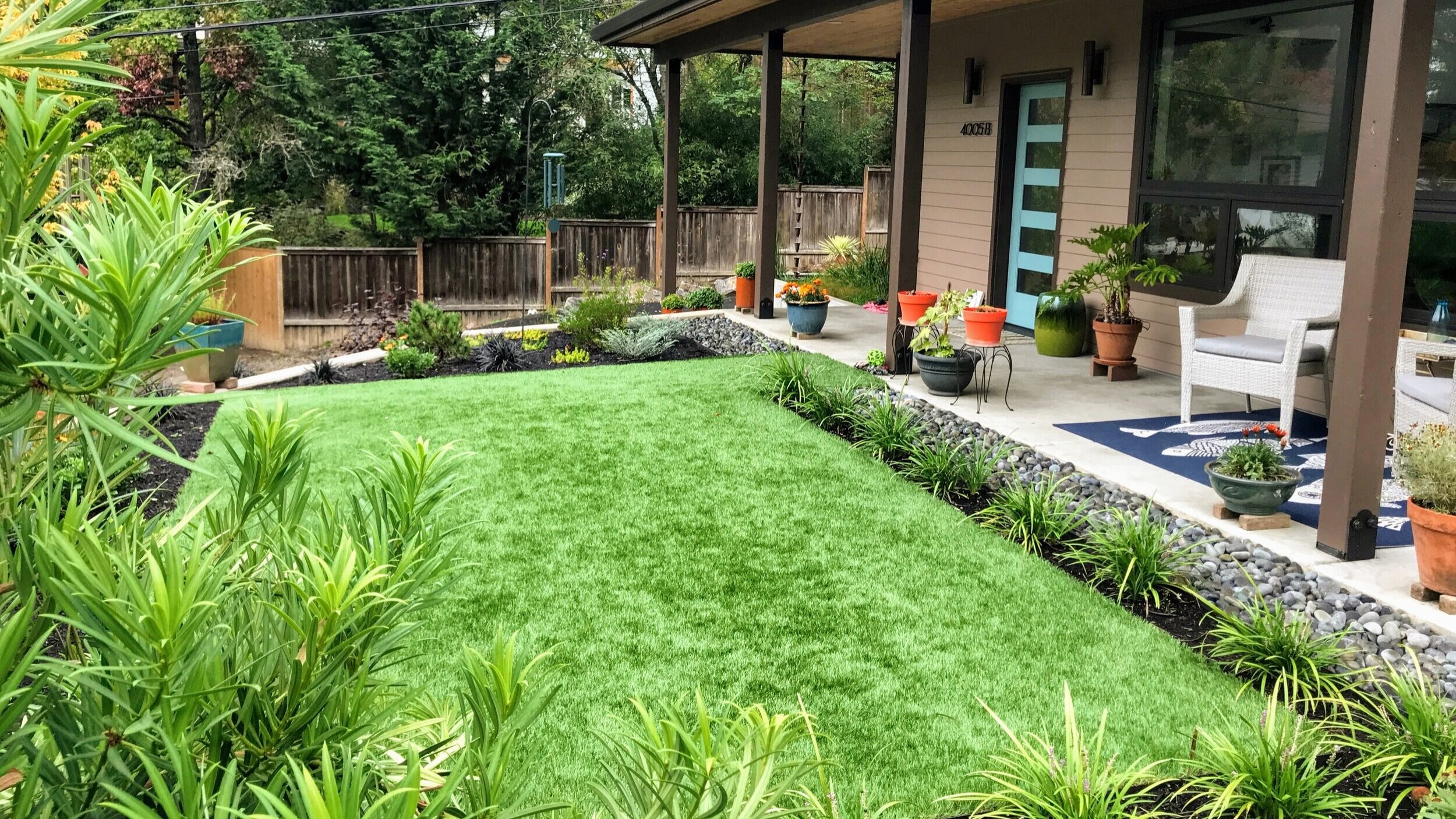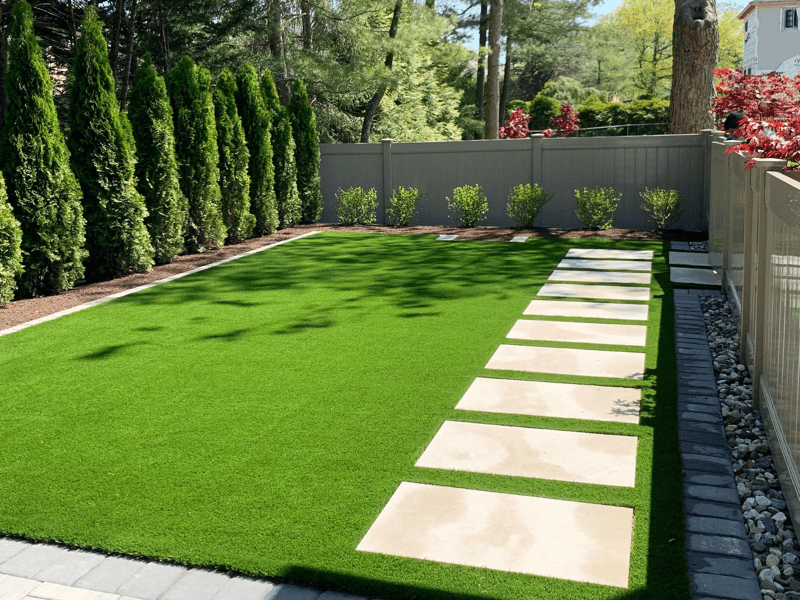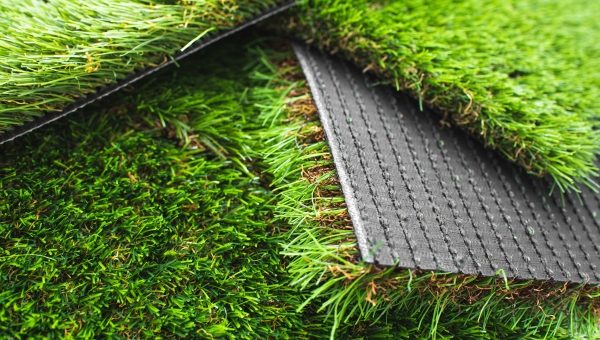Enhance Your Outdoor Space with Arizona Artificial Turf for a Vibrant Green Look
Enhance Your Outdoor Space with Arizona Artificial Turf for a Vibrant Green Look
Blog Article
Explore the Environmental Perks of Opting for Synthetic Grass Solutions
The adoption of synthetic grass options provides an engaging possibility to attend to pushing environmental difficulties. By significantly decreasing water usage and decreasing the application of dangerous chemicals, these options not only promote sustainable landscaping however additionally protect local communities. The reduced carbon footprint connected with reduced maintenance activities contributes to a much more lasting method to land management. Nonetheless, the ramifications of these advantages prolong beyond mere conservation efforts, raising questions about their long-term effect on environment conservation and general environmental balance. Discovering these measurements reveals a complex interplay worth taking into consideration.
Water Conservation Conveniences
Among one of the most considerable benefits of synthetic grass is its ability to save water. Conventional grass yards call for substantial irrigation, particularly in locations susceptible to dry spell or water restrictions. On the other hand, fabricated turf does not require watering, dramatically lowering the general demand for water sources. This attribute is specifically advantageous in deserts where water scarcity is a pushing worry.
By getting rid of the need for regular watering, artificial grass adds to sustainable landscape methods and helps alleviate the environmental impact of excessive water consumption. The preservation of water expands to the decrease of overflow, which can lead to soil disintegration and river air pollution.
Furthermore, the installation of artificial turf permits municipalities and home owners to assign water sources extra efficiently, focusing on necessary usages such as alcohol consumption water and agriculture. The shift in the direction of artificial lawn not only promotes liable water use however additionally lines up with more comprehensive ecological objectives focused on maintaining all-natural sources.
As neighborhoods significantly prioritize sustainability, the water conservation advantages of synthetic grass present an engaging instance for its adoption in domestic and business landscaping tasks.
Lowered Chemical Use
The transition to synthetic grass dramatically decreases the reliance on chemical therapies typically made use of in all-natural lawn upkeep. Conventional grass management normally entails the application of plant foods, pesticides, and herbicides to advertise development and control parasites. These chemicals can position dangers to human health, neighborhood wild animals, and the atmosphere, adding to soil and water contamination.
On the other hand, artificial turf gets rid of the requirement for these damaging materials. Once set up, it needs marginal upkeep, mainly containing regular cleansing and seldom infill replenishment. This decrease in chemical usage not only benefits the immediate atmosphere but also adds to more comprehensive environmental security. By minimizing the release of artificial compounds into the community, fabricated lawn promotes healthier dirt and water supply.
In addition, the lack of chemical drainage related to synthetic grass installments aids protect regional waterways from pollution, sustaining marine life and preserving biodiversity. Artificial turf companies phoenix. As communities significantly prioritize lasting practices, choosing synthetic grass offers a viable option that straightens with ecological preservation objectives. Via this change, residential or commercial property proprietors can delight in lavish green rooms without jeopardizing environmental wellness, leading the way for a more sustainable future
Lower Carbon Impact

In addition, the installment of synthetic grass can result in significant water preservation. All-natural yards need significant amounts of water for watering, which not only includes to the carbon impact connected with water extraction and treatment however also strains neighborhood water resources. On the other hand, synthetic grass needs very little upkeep, requiring no watering, thus dramatically decreasing water use and its connected energy expenses.
In addition, the durability of synthetic lawn adds to its decreased carbon effect. With a life expectancy of as much as 15 years or more, the demand for constant replacements is browse around this site reduced, resulting in less waste and reduced energy consumption in production and dealing with traditional yard choices. Overall, synthetic grass offers a lasting alternative for eco conscious landscaping.
Habitat Conservation
Habitat conservation is a critical factor to consider in the argument over landscaping selections, particularly when comparing synthetic grass to natural grass. Natural turf lawns site link usually require comprehensive upkeep, including making use of plant foods, pesticides, and herbicides, which can detrimentally affect regional ecological communities. These chemicals can seep right into the dirt and rivers, hurting native flora and fauna and disrupting local habitats.
On the other hand, man-made turf presents an opportunity to lower the environmental impact of landscaping. By selecting artificial turf, homeowners can decrease the disturbance of natural habitats related to standard lawn treatment methods. Synthetic grass gets rid of the demand for damaging chemicals, thereby shielding neighboring wild animals and keeping the stability of bordering ecological communities. Furthermore, the installation of artificial grass can bring about the conversion of previous yard locations right into more biodiverse landscapes, such as pollinator yards or native plant locations, which can support local wildlife.
Ultimately, the shift to synthetic grass not only saves water and minimizes upkeep efforts however likewise promotes a much more harmonious connection in between human activities and the all-natural environment, advertising habitat conservation at the same time.
Long-Term Sustainability
Lasting sustainability is a crucial consider evaluating the benefits of synthetic grass over conventional grass lawns. One of one of the most substantial benefits of synthetic grass is its sturdiness; it can last up to 15-20 years with marginal upkeep, whereas all-natural turf requires constant reseeding and replacement. This longevity lowers the requirement for constant sources, such as water, plant foods, and pesticides, which are necessary for maintaining a healthy and balanced grass yard.
In addition, synthetic grass adds to a reduction in carbon discharges related to yard treatment equipment. Traditional grass typically call for gas-powered mowers, leaners, and blowers, all of which add to air contamination. Turf installation phoenix az. On the other hand, synthetic lawn removes the demand for such tools, promoting a cleaner setting
Additionally, the manufacturing of artificial grass significantly uses recycled products, improving its sustainability account. As makers embrace environmentally friendly techniques, the ecological impact of synthetic grass remains to lessen.

Verdict
The adoption of artificial turf services offers substantial ecological advantages, consisting of try this substantial water conservation, reduced reliance on unsafe chemicals, and a lower carbon impact. Additionally, synthetic grass help in protecting natural environments by minimizing land disturbance and advertising long-term sustainability via the usage of sturdy materials. Jointly, these elements underscore the potential of synthetic grass to add favorably to environmental health and wellness and offer a viable alternative to conventional landscape design practices in a significantly resource-conscious globe.
In comparison, synthetic lawn does not need watering, substantially minimizing the total demand for water sources. By decreasing the release of artificial compounds into the ecosystem, artificial lawn advertises healthier dirt and water systems.
In addition, the setup of artificial turf can result in substantial water preservation. In contrast, man-made grass needs very little upkeep, needing no watering, therefore considerably minimizing water usage and its linked power costs.

Report this page